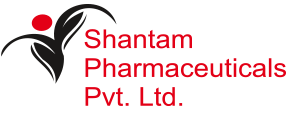
Pharmaceutical Product Types
Pharmaceutical products are all consumable and non-consumable things that help in the prevention and treatment of various diseases, as well as the maintenance of good health and well-being. Medicines account for a significant portion of India’s pharmaceutical products.
They are commonly available in the forms of tablets, capsules, syrups, drops, dry syrups and powders, injectables, creams, lotions, ointments, sprays, oils and drops to mention a few. Each of the medicines is designed and manufactured under strict guidelines and within certain parameters.
Aspects of Tablet Manufacturing That Should Be Considered
Pharma products are by far the most used type of medication. Pharma tablets are used to administer antibiotics, pain relievers, steroids, fever medicine, hormone, and nutritional supplements.
Before beginning the production process, every pharma manufacturer in India must examine the following factors.
- It’s critical to evaluate the drug’s chemical components, stability, and efficacy in tablet form.
- There should be no chemical interactions between the medicinal ingredient and the neutral material utilised as a tablet foundation.
- The environment in which pharma tablets are manufactured and stored must be air-conditioned, roomy, clean, and sterile. It must be light, heat, and humidity-free.
- A team of pharmacologists who are well-versed in all elements of the profession.
- For personnel who will be in direct contact with the pharma tablets during the manufacturing process, it is important to create safety precautions such as protective clothing, breathing masks, gloves, and face shields.
Before developing a fully operational tablet production unit, there are a few other things to consider.
What Is the Process of Making Pharma Tablets?
The manufacture of medicated tablets is governed by the Drugs and Cosmetics Act as well as WHO recommendations. Pharmaceutical manufacturing company follow the methods outlined below to produce high-quality medicinal tablets that are free of additives.
- All of the active and neutral components are meticulously weighed and combined in the correct proportions.
- The mixture must be combined into a fine powder with no coarse particles.
- If the formulation contains water particles, it is dehydrated or dried in a fluid bed drier for a set amount of time.
- Medicated tablets are made by compressing the dry materials into various shapes and sizes.
- Depending on the tablet’s form of administration, the tablet’s exterior coating may be powdery or gelatinous.
- Tablets are frequently carved with the name or emblem of the firm that made them.
- Manufactured tablets are kept dry, dark, and refrigerated in sterile containers composed of non-reactive materials like glass or plastic.
Pharma products can only be made from drugs that have been clinically examined and approved by the relevant regulatory agency.
